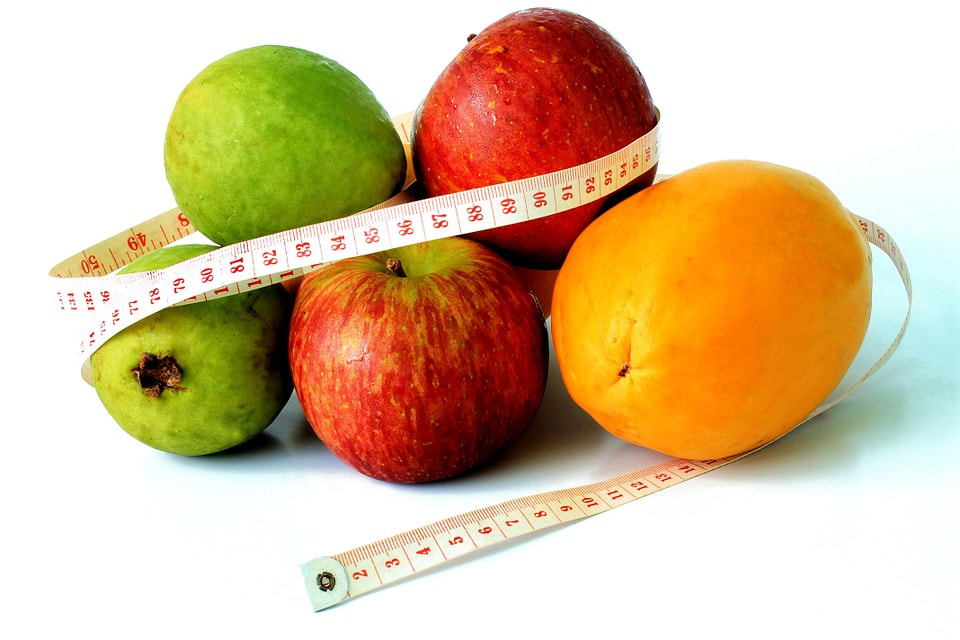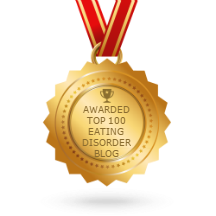- Home
- About
-
Services
- Therapy
-
Eating Disorder Trainings
>
- Clinical Approaches To Treating Body Image Issues
- Clinical Approaches To Treating Bulimia & Binge Eating Disorder
- Finding Freedom From Binge Eating
- Finding Freedom From Anorexia
- Supporting A Loved One With An Eating Disorder
- Eating Disorder Recovery Road Map
- Healing From Body Hate And Practicing Self-Compassion
- Common Questions
- Blog
- Press
- Contact
|
Healthy living and the concept of “healthy eating” appears to be our new cultural fixation. We are constantly flooded with articles and advertisements consisting of elaborate juices, recipes, and lists of super foods, that all claim to be able to instill us with optimal health. So what on earth does it mean to “eat healthy?” There are many different camps that have opposing viewpoints as to what constitutes “healthy eating.” Some people have jumped on the “I eat only organic” bandwagon, whereas others are fixated on the concept of “clean eating,” and still others promote the “whole 30” diet with an almost religious zeal. The first problem that I have with the idea of “healthy eating” is that often it is simply just a more socially acceptable way for people to attempt to control their weight by manipulating their food choices. Many people I know who speak about trying to “eat healthy,”paradoxically practice other habits (such as smoking, tanning, and excessive drinking), which demonstrate that they may not be as “health conscious” as they are attempting to appear. Saying that they are simply trying to “eat healthy” is a way for some people to (perhaps even unconsciously) justify what may become restrictive or rigid eating habits, and could even serve to mask the development of disordered eating or eating disorders. Research indicates that diets “do not work” in regards to maintaining weight-loss in the long term. Further, labeling your diet as “healthy eating” or a “lifestyle change,” does not change the fact that we are simply not able to control our weight in the way that the “health and wellness” industry wants us to believe is possible. Additionally, even if we could control our weight (which the majority of us cannot do long-term), we cannot control other's opinions of us or our overall sense of happiness through our weight. People desire to be "thin" because of what they think that being "thin" will bring them. But the reality is that you can find health, happiness, and love-at any size. Further, it’s been shown through research that shaming someone for their body size results in many poor health outcomes-and may even be deadly. So, when people are shaming someone “in the name of health,” not only is this promoting poorer health outcomes, it’s also a form of oppression towards those in higher weight bodies. Black and White Mentality Around Food Saying that you are trying to “eat healthy,” indicates that there are some foods that are “healthy” and other foods that are “unhealthy.” This kind of black-and-white mentality surrounding food sets people up for disordered eating habits. For instance, let’s say that you are “trying to eat healthy” and you decide to eat a brownie at a work function. If you have a black-and-white mindset surrounding food- this perceived “failure” could lead to you “falling off the wagon” and succumbing to a binge or over-eating episode. Additionally, food is inherently neutral and you are not a “bad” or “good” person based upon the type of food that you choose to eat. We need to take the concept of morality out of our food choices. I’ve had people reach out to me claiming that eating donuts or brownies will lead to death and disease. However, the reality is that we are all going to die one day. No amount of kale and carrots will protect you from that reality. Also, it’s all about “dosage.” If all you ate were kale and carrots, you’d become unhealthy. The same way, if all you ate was donuts you’d become unhealthy. Kale in very high does and water can actually both lead to poor health outcomes (thalamin poisoning and hyponatremia). Further, social relationships were the biggest predictor of longevity in a 75-year study conducted by Harvard, and disordered eating/eating disorders can severely limit relationships. Health Is Individualized Another big issue that I have with the concept of “healthy eating” is that health is completely context and person-specific. We’ve all seen the fear-mongering lists of “foods that you should never eat again" or "foods that are totally unhealthy.” These general statements as to what foods are “healthy” and “unhealthy” are completely ridiculous. As human beings we are completely different and unique, with different gut bacteria, histories, environments, genes, and tons of other biological and psychological variations. What may be “healthy” for one person may be “unhealthy” for another, therefore making any general statements that label a food group or specific food, as being “healthy” or “unhealthy” makes zero sense. For instance, for an individual who is obsessed with “low-carb eating,” rigid food rules, and compulsive exercise-the healthiest thing for them may be to eat a bag of potato chips for a snack. They may be nutritionally compromised as a result of their rigid food rules-and also may be struggling with their mental health as a result. Eating the potato chips may also help them in their journey towards making peace with food and neutralizing foods. Additionally, if they are deprived of carbohydrates-the chips could help to improve their health (as we know that carbohydrates are essential in regards to providing energy, serve as your bodies main fuel source, and help to improve digestion and heart health). Further, mental health is an important part of one's overall health. Ultimately, I don't care how much green juice you drink-if the thought of having dessert gives you anxiety-that is not mentally healthy. Matt Stone exemplified this point in his book entitled Diet Recovery 2, when he states, “Even with things that we can all intellectually agree is unhealthy, such as a meal at McDonald’s, there will be literally thousands of people that read this book who are freezing cold or haven’t slept through the night in years, or who are suffering from anxiety..And most of those health-conscious people wouldn’t DARE eat at McDonald’s. But to their surprise, they might find almost immediate relief from their health condition(s) if they were to go pig out of 2-3 double Cheeseburgers, an apple pie or two, and an ice cold Coke form none other than the infamous Mickey D’s. Why? Because the calorie-density, digestibility, and salt and sugar-healthy load of a McDonald’s meal is unparalleled. And for someone in a really low metabolic state, this can literally be the most therapeutic of all combinations." Stone continues," You might heal faster eating at McDonald's than trying to do it on organic, unrefined, wholesome, and nutritious food because such food is not as calorie-dense, has higher water content, has more fiber, and is just too filling and unexciting to foster the same level of calorie consumption. So the unknowns about what is and isn’t healthy for an individual at any given moment are so vast that they are beyond our ability to neatly file into categories of “good” and “bad.” Another example that I love to give is around the idea that the "healthy choice," also depends on the context of the situation. For instance, if I needed a snack to hold me over for a few hours, which would be "the healthier choice," a plate of broccoli or a bag of chips? The more optimal choice would be the chips because in that moment-the chips would give me carbs, fat, and energy, whereas the broccoli wouldn't give me adequate energy or nutrients to power me through my afternoon. Your Health Status Isn’t a Measure of Your Worth Further, health is not a moral imperative or a barometer of your worth. Many people have chronic diseases or illnesses, which cause them to “not be healthy,” and they are still valuable and worthy people. No matter what you weigh, the kind of food that you have eaten today, how much you exercised, or what your “health status is,” you are enough, just as you are. Jennifer Rollin, MSW, LCSW-C: is an eating disorder therapist in private practice in Rockville, Maryland. Jennifer specializes in helping teens and adults struggling with anorexia, binge eating disorder, and bulimia, and body image issues. Jennifer provides eating disorder therapy in Rockville, MD, easily accessible to individuals in Potomac, North Potomac, Bethesda, Olney, Germantown, and Washington D.C. Jennifer also offers virtual eating disorder recovery coaching to people worldwide. Connect with Jennifer through her website: www.jenniferrollin.com
4 Comments
5/30/2018 04:23:52 pm
This is a very well written and easy to comprehend article. I, for one, eat relatively healthy as I am recovering from a relapse of Anorexia. I have worked and continue to work hard at following my meal plan, but allowing myself a cookie is a big deal. Now to all those healthy eaters out there, let me tell you that having a cookie after a long bike ride isn't going to kill me and it was as this article pointed out just what I needed and wanted to refuel. Sadly this moment of celebration was tainted by my dietician telling me to "remember to eat all the healthy food!" "A sweet treat is okay once in a while but..." No buts on this one for me! I ate it,I (anxiously) enjoyed it and this is a sign of my overall health, not weakness, nor over indulgence. I just wish my dietician could have celebrated fully this accomplishment without the "but" Blessings
Reply
Crystal Savoy
5/31/2018 08:26:24 am
Sending you lots of compassion and it sounds like you need a new dietitian.
Reply
6/19/2018 07:05:06 pm
Jennifer.... I very much appreciated your article. My mission for the last 30 years or so is to help people remember that each one of us is unique and to help them get in touch with their uniqueness in all ways - including how they approach their own health, eating, etc.
Reply
Leave a Reply. |
About MeI'm an eating disorder therapist in private practice in Rockville, MD. Archives
June 2024
|


 RSS Feed
RSS Feed
